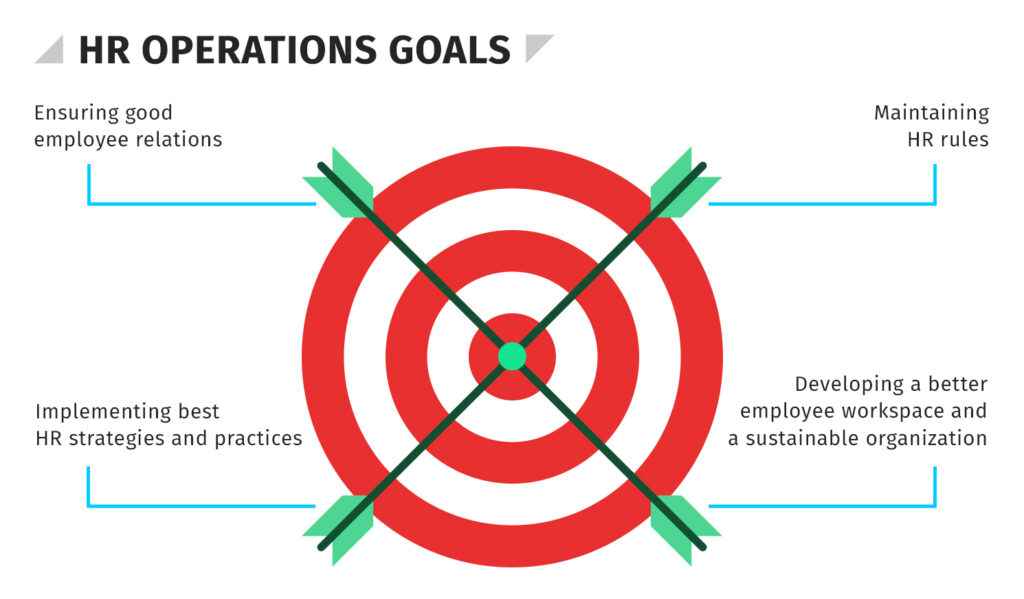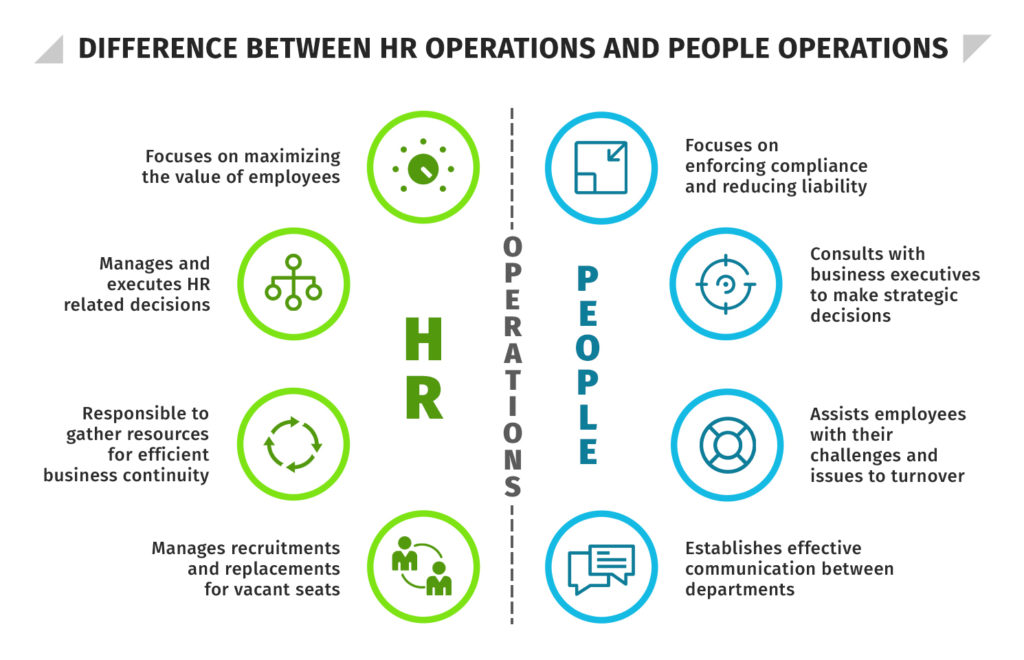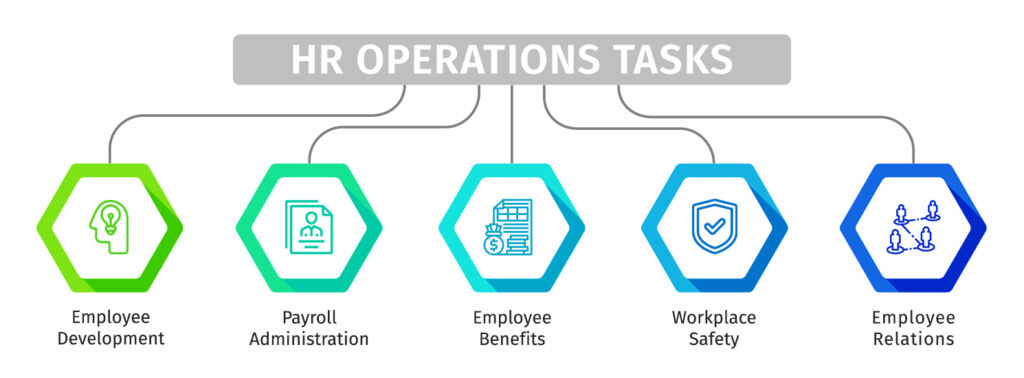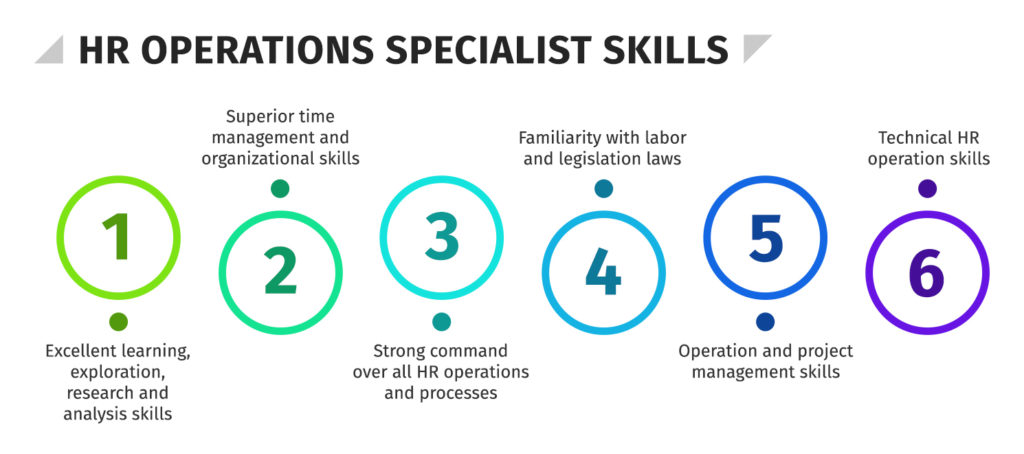Our reviewers evaluate writing courses independently. Learn how we stay transparent, our methodology, and tell us about anything we missed.

Home › HR Career Path ›
An HR Operations Specialist is pivotal in managing and enhancing the operations within the Human Resources department. This role primarily focuses on strategic development, improving departmental efficiency, and managing employee relations. HR Operations Specialists are essential for larger enterprises that require their HR departments to manage increasingly complex workloads effectively.
Working under the guidance of senior HR personnel, such as an HR Operations Manager, these specialists contribute significantly to the smooth and productive operation of the department. As the HR field expands and organizations grow more intricate, its roles become more multi-dimensional, demanding a thorough understanding of their specific responsibilities and the broader job landscape before applying.
This article delves into the role and responsibilities of an HR Operations Specialist, answering frequently asked questions and outlining the skills necessary for success in this position. For those interested in further exploration through multimedia, a video is available below. Otherwise, continue reading for more detailed information.
An HR Operations Specialist focuses on the department’s day-to-day management, prioritizing major operational processes. While they also engage with other HR functions, their primary role is to enhance the effectiveness of departmental operations. They play a critical role in strategic planning sessions, representing HR operations, and are involved in improving the department’s workflow.
Additionally, HR Operations Specialists handle employee inquiries related to payroll, tax, and onboarding procedures, ensuring that these critical aspects of employee management are executed efficiently.
This section of the article aims to provide a clear understanding of what an HR Operations Specialist does and how they contribute to the overall success of the Human Resources department.

An HR Operations Specialist is tasked with diverse responsibilities within the HR department, requiring excellent multitasking capabilities and keen attention to detail. This role demands proficiency in documentation and strong interpersonal skills to collaborate with colleagues across the organization.
Key Responsibilities of an HR Operations Specialist include:
These operations are essential for maintaining sustainability and ensuring a satisfied workforce. Consequently, the role of an HR Operations Specialist is critical, as they handle key functions within HR and are often compensated with impressive salary ranges due to their extensive responsibilities.
While there is significant overlap in the roles of an HR Specialist and an HR Operations Specialist, there are distinct differences. Both roles handle primary HR functions, but an HR Operations Specialist also focuses on specific aspects of human resources and takes on additional responsibilities related to departmental processes and administrative workload. Unlike a regular HR Specialist, who may focus more on general HR tasks, the Operations Specialist is integral in ensuring the efficiency and effectiveness of the entire department.

Whether you want to become an HR operations specialist or a traditional HR specialist, you need the proper knowledge and skills.
While there are many ways to acquire these crucial prerequisites, consider the industry-standard advanced HR courses at HR University.
The role of a Human Resources Operations Specialist encompasses traditional HR tasks while emphasizing the enhancement of the department’s effectiveness and the implementation of its policies.
The specific responsibilities of an HR Operations Specialist can vary widely between organizations, but some general primary responsibilities are common across industries:
HR Operations Specialists often participate in strategic planning sessions organization-wide. They shape how the HR department should implement policies or procedural changes. By representing the HR operations team in strategic development meetings, they ensure that the team’s perspective is integrated into the planning process, facilitating better plan execution.
This involvement is essential as it allows the HR Operations Specialist to directly influence and improve the operational strategies that impact the department’s overall functionality and success.

An HR Operations Specialist is central to optimizing the department’s efficiency. They start by gathering critical productivity data and analyzing it thoroughly. Based on this analysis, they develop actionable strategies aimed at enhancing the department’s functionality. Part of their role involves identifying and phasing out inefficient practices, ensuring the department operates efficiently.
This role is crucial in maximizing the productivity of the HR department, which directly influences the organization’s success as an employer. The HR Operations Specialist and the entire HR operations team continually monitor and refine the department’s operations and administrative procedures to foster ongoing improvement.
In a data-driven position, an HR Operations Specialist relies on analytical tools to support recommendations for enhancing departmental workflows. This ensures that any proposed changes are well-supported by data and will yield positive results.
Compliance with legal and regulatory standards is a fundamental responsibility of the HR department. An HR Operations Specialist plays a critical role by meticulously reviewing all essential compliance records and policies. This thorough understanding enables the operations team to devise strategies that adhere to legal requirements.
The HR Operations Specialist is well-versed in compliance processes, ensuring that the organization consistently minimizes legal risks. Their expertise in this area is vital for maintaining the integrity and lawful operation of the organization.

Moreover, the HR operations specialist overlooks any employee grievances or disciplinary actions that the human resources department takes to ensure the process follows legal standards. They oversee all legal people activities that the department performs to save the organization from getting into potential legal trouble.
An HR Operations Specialist ensures the organization excels as an employer. They manage crucial HR functions, including:
The HR Operations Specialist supervises these essential functions and identifies areas for improvement, suggesting enhancements to ensure the department operates optimally.
At first glance, the responsibilities of an HR Operations Specialist may seem similar to those of a regular HR Specialist, but the role entails a deeper involvement in administrative processes. An HR Operations Specialist is responsible for overseeing and improving the procedures within the HR department, ensuring they are efficient and legally compliant.
This role requires substantial professional experience in HR administration, strong managerial capabilities, and excellent communication and strategic planning skills. By mastering these areas, you can excel as an HR Operations Specialist and contribute significantly to the organization’s success and legal integrity.
Here are some frequently asked questions about the HR operations specialist role.
An HR Operations Specialist is crucial in managing core HR processes that ensure smooth organizational functioning. These processes include payroll management, employee data maintenance, and benefits administration. They utilize their expertise to streamline workflows and optimize the use of HRIS. By effectively managing HR data, these specialists help HR managers make informed decisions, fostering a productive and compliant workplace environment.
HR Operations Specialists provide essential support to an HR manager and the HR team by handling the routine, operational aspects of the human resources department. This includes managing HR data and systems, ensuring that all employee records are up-to-date and accurately maintained in the HRIS. These responsibilities enable HR managers to focus on more strategic tasks such as talent management and organizational development, thereby enhancing the overall efficiency of HR operations teams.
HRIS is pivotal in enhancing HR operations efficiency. It serves as a central database for all data, allowing HR teams to easily access and manage employee information, process payroll, track performance appraisals, and manage benefits. The HRIS helps automate many manual HR processes, reduce errors, and save time. This system is an invaluable tool for HR Operations Specialists, who rely on accurate and timely data to support HR managers and drive organizational success.
HR Operations Specialists ensure data accuracy by auditing and updating the HRIS. They implement stringent data management practices, including regular checks and balances, validation procedures, and security measures to protect sensitive information. By maintaining accurate data, they support HR operations teams in making strategic decisions and maintaining compliance with employment laws and regulations. This attention to detail is critical in building trust and efficiency within the department.
If you are new to Human Resources and are looking to break into an HR operations specialist role, we recommend taking our HR Certification Courses, where you will learn how to build your skillset in human resources, build your human resources network, craft an excellent HR resume, and create a successful job search strategy.
Learn modern and relevant technical writing skills